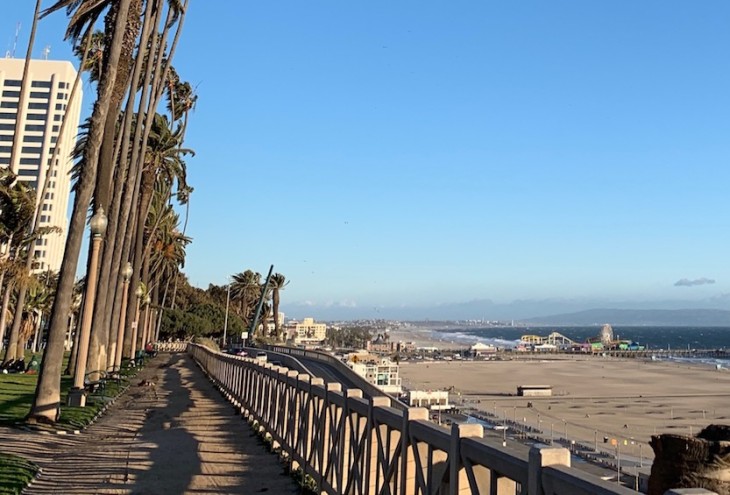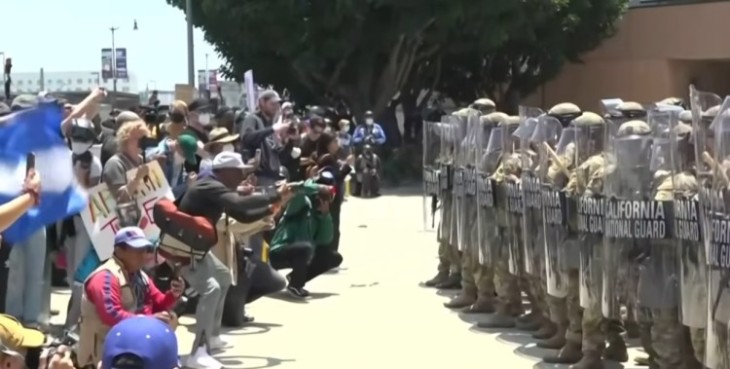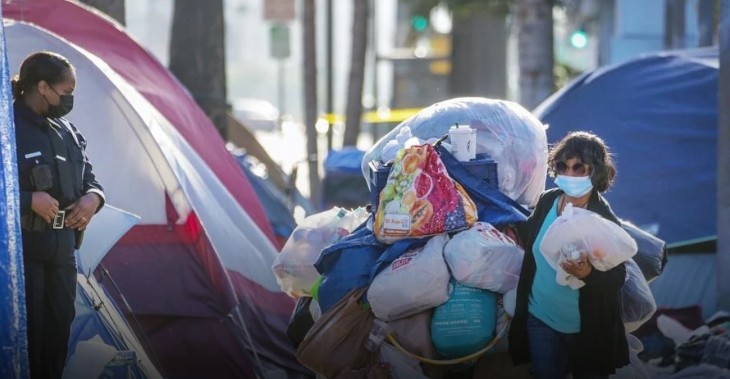Santa Monica has taken a monumental step towards protecting housing stock in the city, banning short-term vacation home rentals across the board and taxing home-sharers.
The move has been welcomed by some community groups but has raised the question of privacy for industry organizations and home-sharers alike.
Riding on the platform that housing units should be made available for residents, not tourists, Santa Monica City Council passed Tuesday night the first reading of an ordinance that will ban short-term vacation rentals, with home-sharers required to register as a business and pay taxes as such.
The ordinance will see all short-term rental units come off the holiday market, with the City hoping to force online platforms such as Airbnb and VRBO to report violators who try to list their properties for short-term lease and to provide lists of home-sharers to City staff.
Industry groups said they are glad that the City is considering changes to enable hosts to share their homes and earn extra money, but they have concerns about specific aspects of the ordinance.
“The proposed law significantly impacts the expectation of privacy most Santa Monica residents have when they use online platforms like Airbnb,” an Airbnb spokesperson explained. “The law would require platforms to hand over large swaths of confidential, personal information to City regulators who will sift through this data in search of potential zoning code violations.”
Hearing from more than 60 concerned residents on the issue at City Hall Tuesday, April 28, during a scheduled City Council meeting, council members unanimously passed the ordinance that includes the enforcement of civil penalties on anyone who tries to list a vacation property for less than 31 days or who is home-sharing without being registered as an official business.
The ban is inline with current City legislation that prohibits the leasing of property for less than 31 days, according to the City.
The new ordinance ban applies to a “complete” housing unit with its own title where the host is off-site.
“People can’t engage in a business model where they purchase condominiums or rental units and then literally abandon them as residences and turn them into a defacto hotel in a residential neighborhood,” explained Councilwoman Gleam Davis.
“Home-sharing” refers to an on-site host residing on a single-title property with a room or guest cottage for lease. The ordinance makes room for house-swaps or “hosted” home-stay rentals where, “at least one of the primary residents lives on-site throughout the visitors’ stay,” according to the City.
In this case, the home-sharing host would have to procure a Santa Monica Business License and pay Business and Transit Occupancy Tax (TOT).
The collection of TOT will be enforced via agencies and hosting platforms such as Airbnb and VRBO, council members agreed.
The enforcement of the new ordinance will require the addition of three full-time permanent positions and supplies and expenses to the City at a total of $410,029 in financial year 2015-16 and a cost of $266,898 annually, according to the City.
“With 100 percent compliance, the program will generate estimated annual revenues of approximately $138,500 in Transient Occupancy Tax,” the City stated.
Due to the ramp up time to achieve compliance, City staff estimates total revenue of approximately $69,000 (50 percent compliance) for financial year 2015-16 and $110,800 (80 percent compliance) for financial year 2016-17.
“Higher amounts would be realized sooner if hosting platforms begin collecting TOT on behalf of the City,” staff added.
The City also estimated that in the first year of enforcement, fines totaling approximately $85,000 could be collected.
Despite the initial costs involved, council members were unanimous in their sentiment of not having Santa Monica neighborhoods transform into tourist lodgings.
“What we’re doing tonight effectively is legalizing some of the platforms, like Airbnb,” explained Councilwoman Pam O’Connor.
“We want to make sure that someone who remains in their home and wants to rent out a room can, but we don’t want to become Balboa Island,” said Davis, explaining that for many people, the extra money makes a significant difference to augmenting their income.
Several council members acknowledged that there may currently be reservations in place for short-term rentals in Santa Monica later this year, and that the enforcement of any new legislation should take into consideration people who booked, planned and paid for short-term lodgings before such legislation comes into play.
At the conclusion of the almost three-hour discussion, Mayor Kevin McKeown added a direction to City staff to include the creation of an education campaign for residents that highlights the issue that individual leases trump City legislation, and that if “no subletting” is clearly stated in a lease, then this stands.























